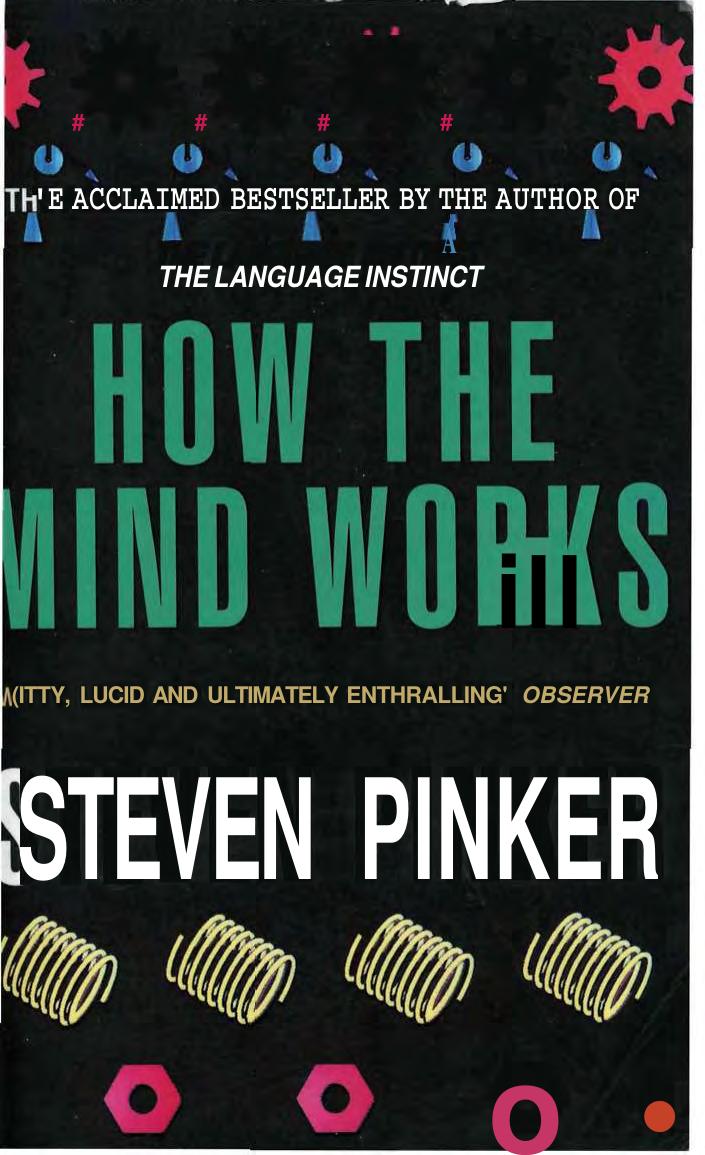How The Mind Works by Steven Pinker

Author:Steven Pinker
Language: eng
Format: mobi, pdf
Tags: Non-fiction, Popular science
Published: 2011-04-08T13:19:25+00:00
342 | HOW THE MIND WORKS
practice, the routes to automaticity, are called “mechanistic” and seen as detrimental to understanding. As one pedagogue lucidly explained, “A zone of potential construction of a specific mathematical concept is determined by the modifications of the concept children might make in, or as a result of, interactive communication in the mathematical learning environment.” The result, another declared, is that “it is possible for students to construct for themselves the mathematical practices that, historically, took several thousand years to evolve.”
As Geary points out, constructivism has merit when it comes to the intuitions of small numbers and simple arithmetic that arise naturally in all children. But it ignores the difference between our factory-installed equipment and the accessories that civilization bolts on afterward. Setting our mental modules to work on material they were not designed for is hard. Children do not spontaneously see a string of beads as elements in a set, or points on a line as numbers. If you give them a bunch of blocks and tell them to do something together, they will exercise their intuitive physics and intuitive psychology for all they’re worth, but not necessarily their intuitive sense of number. (The better curricula explicitly point out connections across ways of knowing. Children might be told to do every arithmetic problem three different ways: by counting, by drawing diagrams, and by moving segments along a number line.) And without the practice that compiles a halting sequence of steps into a mental reflex, a learner will always be building mathematical structures out of the tiniest nuts and bolts, like the watchmaker who never made subassemblies and had to start from scratch every time he put down a watch to answer the phone.
Mastery of mathematics is deeply satisfying, but it is a reward for hard work that is not itself always pleasurable. Without the esteem for hard-won mathematical skills that is common in other cultures, the mastery is unlikely to blossom. Sadly, the same story is being played out in American reading instruction. In the dominant technique, called “whole language,” the insight that language is a naturally developing human instinct has been garbled into the evolutionarily improbable claim that reading is a naturally developing human instinct. Old-fashioned practice at connecting letters to sounds is replaced by immersion in a text-rich social environment, and the children don’t learn to read. Without an understanding of what the mind was designed to do in the environment in which we evolved, the unnatural activity called formal education is unlikely to succeed.
Download
This site does not store any files on its server. We only index and link to content provided by other sites. Please contact the content providers to delete copyright contents if any and email us, we'll remove relevant links or contents immediately.
The Art of Thinking Clearly by Rolf Dobelli(8842)
Mindhunter: Inside the FBI's Elite Serial Crime Unit by John E. Douglas & Mark Olshaker(7834)
Change Your Questions, Change Your Life by Marilee Adams(6641)
Nudge - Improving Decisions about Health, Wealth, and Happiness by Thaler Sunstein(6633)
Mastermind: How to Think Like Sherlock Holmes by Maria Konnikova(6236)
The Power of Now: A Guide to Spiritual Enlightenment by Eckhart Tolle(4755)
Men In Love by Nancy Friday(4325)
Factfulness: Ten Reasons We're Wrong About the World – and Why Things Are Better Than You Think by Hans Rosling(4021)
The Confidence Code by Katty Kay(3566)
Thinking in Bets by Annie Duke(3531)
Man and His Symbols by Carl Gustav Jung(3315)
Three Women by Lisa Taddeo(2920)
The Worm at the Core by Sheldon Solomon(2917)
Why Buddhism is True by Robert Wright(2826)
Liar's Poker by Michael Lewis(2812)
The Inner Life of Animals by Peter Wohlleben(2766)
Descartes' Error by Antonio Damasio(2731)
The Power of Mindful Learning by Ellen J. Langer(2710)
The Slow Fix: Solve Problems, Work Smarter, and Live Better In a World Addicted to Speed by Carl Honore(2574)
